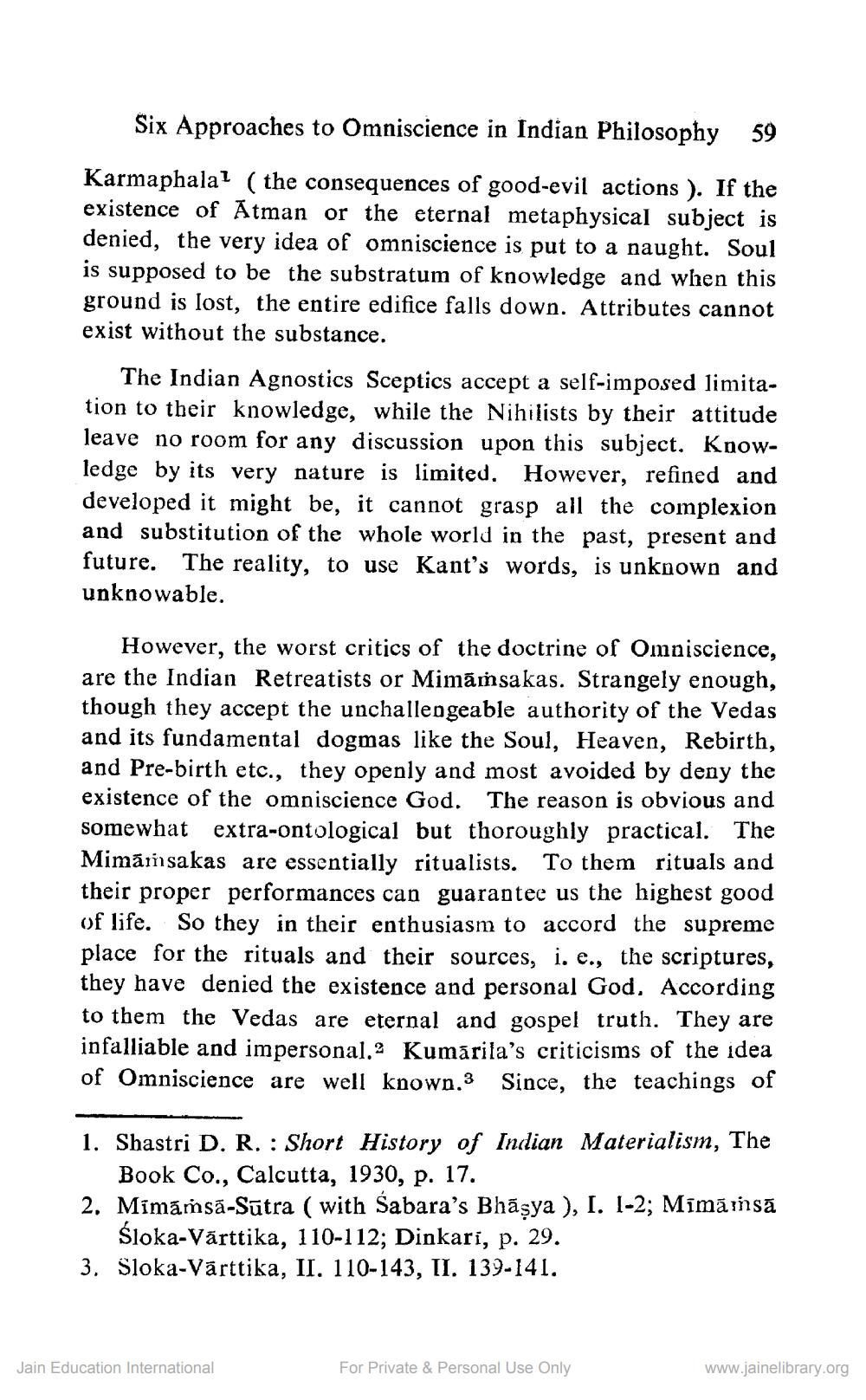________________
Six Approaches to Omniscience in Indian Philosophy
59
Karmaphalal ( the consequences of good-evil actions ). If the existence of Atman or the eternal metaphysical subject is denied, the very idea of omniscience is put to a naught. Soul is supposed to be the substratum of knowledge and when this ground is lost, the entire edifice falls down. Attributes cannot exist without the substance.
The Indian Agnostics Sceptics accept a self-imposed limitation to their knowledge, while the Nihilists by their attitude leave no room for any discussion upon this subject. Knowledge by its very nature is limited. However, refined and developed it might be, it cannot grasp all the complexion and substitution of the whole world in the past, present and future. The reality, to use Kant's words, is unknown and unknowable.
However, the worst critics of the doctrine of Omniscience, are the Indian Retreatists or Mimāmsakas. Strangely enough, though they accept the unchalleogeable authority of the Vedas and its fundamental dogmas like the Soul, Heaven, Rebirth, and Pre-birth etc., they openly and most avoided by deny the existence of the omniscience God. The reason is obvious and somewhat extra-ontological but thoroughly practical. The Mimāmsakas are essentially ritualists. To them rituals and their proper performances can guarantee us the highest good of life. So they in their enthusiasm to accord the supreme place for the rituals and their sources, i. e., the scriptures, they have denied the existence and personal God. According to them the Vedas are eternal and gospel truth. They are infalliable and impersonal.2 Kumarila's criticisms of the idea of Omniscience are well known.3 Since, the teachings of
1. Shastri D. R. : Short History of Indian Materialism, The
Book Co., Calcutta, 1930, p. 17. 2. Mimāṁsā-Sūtra ( with Śabara's Bhāşya ), I. 1-2; Mimārsā
śloka-Vārttika, 110-112; Dinkari, p. 29. 3. Sloka-Vārttika, II. 110-143, II. 139-141.
Jain Education International
For Private & Personal Use Only
www.jainelibrary.org




